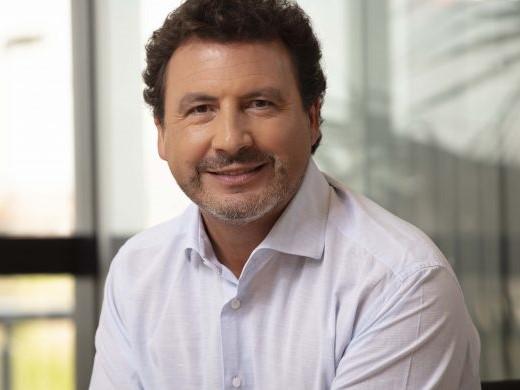Portuguese people who stand out abroad are helping to find out where business opportunities are and what kind of companies and activities the country can attract. An initiative that brings together Negócios and the Portuguese Diaspora Council.
1- What led you to leave Portugal?
Initially curiosity and a sense of adventure. He was 25 years old and wanted to learn new languages, experience new cultures and travel. It was not a calculated act or a gesture of ambition. It was much more naïve.
Then, career acceleration in a multinational context. I realized the springboard effect that traveling abroad provided and which is crucial in a company like L’Oréal. Expatriation implies great agility and adaptability.
Finally, the acquisition of new skills and financial advantage. My time in Thailand exposed me to an emerging market, making decisions in a context of imperfect information and with culturally very distant teams.
Now I’m back in Paris, in a Global position, which allows me to have an impact on a much larger scale.
To summarize: curiosity, spirit of adventure, career acceleration, financial progression, impact.
I think it’s important to mention that this path was made up of professional trips to Portugal, which allowed me to maintain contact and, in some way, contribute to the country’s development.
2- What advantages or disadvantages does being Portuguese bring you?
I am 100% a result of the Portuguese public education system. I’m very proud of this, and I consider it a good demonstration of its quality. In my professional challenges, I have taken my technical and interpersonal skills and they have been an advantage. On the other hand, the ease that Portuguese people have in speaking new languages has helped me connect with different people.
I would also add the spirit of adventure and discovery that characterizes us and which, applied to business, is highly advantageous.
At the beginning of my career, many people didn’t know where Portugal was, especially in Asia. But even that has changed, with phenomena like Cristiano Ronaldo, a symbol of effort and resilience, synonymous with high performance and overcoming oneself.
Deep down, we are all a bit Cristianos, by essence or by collage (laughs).
3- What obstacles did you have to overcome and how did you do it?
Throughout our 22-year career, there are multiple obstacles we have encountered. We learn a lot from adversity, we grow and develop resilience.
At a certain point in my career, I had to leave the Portuguese stopover. It is normal for our reference points to be those we know and this can limit the impact of our actions. “Thinking big”, believing that everything is always possible, are ways of thinking that are not always natural to us. I have always tried to instil in my teams that “we are the size of our dreams”, and my management model has been guided by a good dose of balance between vision and means of support. I believe that a leader must be an enabler and break down barriers so that teams are more efficient.
In terms of human management, when I was in Bangkok, I also had to adapt to a culture that has a different sense of time and ambition. The importance of the collective is fundamental, and that’s why I learned to surround myself with great talents, but above all to form high-performance teams. Basically, the dichotomy between individual and collective.
4- What do you admire most about the country where you are?
Right now, I’m back in Paris. I know it well since it’s the third time I’ve lived in the City of Light. I like its ambition, critical spirit and extreme aesthetic sensitivity. Paris is the birthplace of fashion, luxury and beauty. For anyone who works in my sector it is a privilege.
I also admire the role that France has played, and continues to play, in the European project and in the defence of democracy. France was, historically, the birthplace of many social advances, in the female cause, but not only. The strength of unions in the country, which from the outside may seem excessive, has allowed many workers’ rights to be defended, provoking debates that are critical in times of technological advancement or inflation. As with (almost) everything, excesses are not desirable, of course.
I have a certain admiration for a country that seems to balance socioeconomic balance well. I am obviously clear about the social fracture that exists today in France, but this reality is not antagonistic to what was described above.
5- What do you most admire about the company or organization where you work?
Its values. L’Oréal has strong principles of innovation, diversity and equality in its DNA. Believes that beauty is not superficial, but a way to move the world forward.
However, perhaps L’Oréal’s most differentiating factor is the way it manages talent. The company deeply believes that experience is necessary but not sufficient. Teaches its managers to identify talent in young people and to take risks. We are always attentive to what is being born, starting and, as leaders, we have the mission to make this beginning magical and make it known to the world. We apply this to our innovation process and also to human resources.
6- What recommendations would you give to Portugal and its entreprenuers and managers?
I have a deep admiration for Portugal and the path it has taken in the last decade. The opening to the outside world, to tourism, to renewable energies, the continued focus on education (the NOVA University project is notable) are important steps to improve our position in Europe. I believe that there are still opportunities in our relationship with Brazil and the PALOP, and our maritime exposure should also be a competitive advantage for Portugal.
7- In which sectors of the country where you live could Portuguese companies find customers?
Portuguese-French relations are known and historic. The relationship between the two countries is very healthy. Agriculture, restaurants, footwear, fashion. We have incredible savoir-faire that we can (and should) export.
8- In which sectors in Portugal could companies from the country where you live want to invest?
I think the most obvious industry at the moment is tourism, but Portugal is an equally attractive country for shared services. AICEP has developed various strategies to publicize Portugal’s competitive advantages, and the Chambers of Commerce and the Diaspora have been important networks in publicizing them.
Also in the area of health and aging, I believe that Portugal will be able to lead the way in the future. Who doesn’t want to retire in a country with incredible medicine doctors, where the sun shines more than two hundred days a year? Let the projects and new infrastructures come and we will certainly be the California of Europe.
9- What is the competitive advantage of the country you live in that could be replicated in Portugal?
France manages to combine enormous pride in the “France” brand, with a remarkable scale and export capacity. Half of the value of the CAC-40 is associated with the Luxury sector, from creation to marketing. France manages to animate the entire value chain. Portugal has cork, wine, and incredible technological capabilities that could be explored in a global and integrated way.
10- Are you thinking of returning to Portugal? Why?
I would like to return someday and be able to contribute with the experience gained and my contacts network. It will be important to be able to repay the investment in education that Portugal made in me.
My French husband has a company in Portugal, which will definitely make the return easier.
On a personal note, my family lives here and I would like, one day, for my son to enjoy the freedom, security, sense of friendship and Portuguese lifestyle. In the transmission of values, there is a theoretical part and experience. I try every day to instil in him a taste for the Portuguese language, nature and people, but in Portugal all of this is absorbed naturally, without effort.
As I speak, I realize that return plans are far away… and this has to do with the lack of financial attraction to return. In Portugal, as in other countries, you work a lot, but you are paid, proportionally, very poorly. The ability to save is small, which has led many young people to emigrate. The recent measures taken by the Government will result in very few returning.
Read the original article here.






